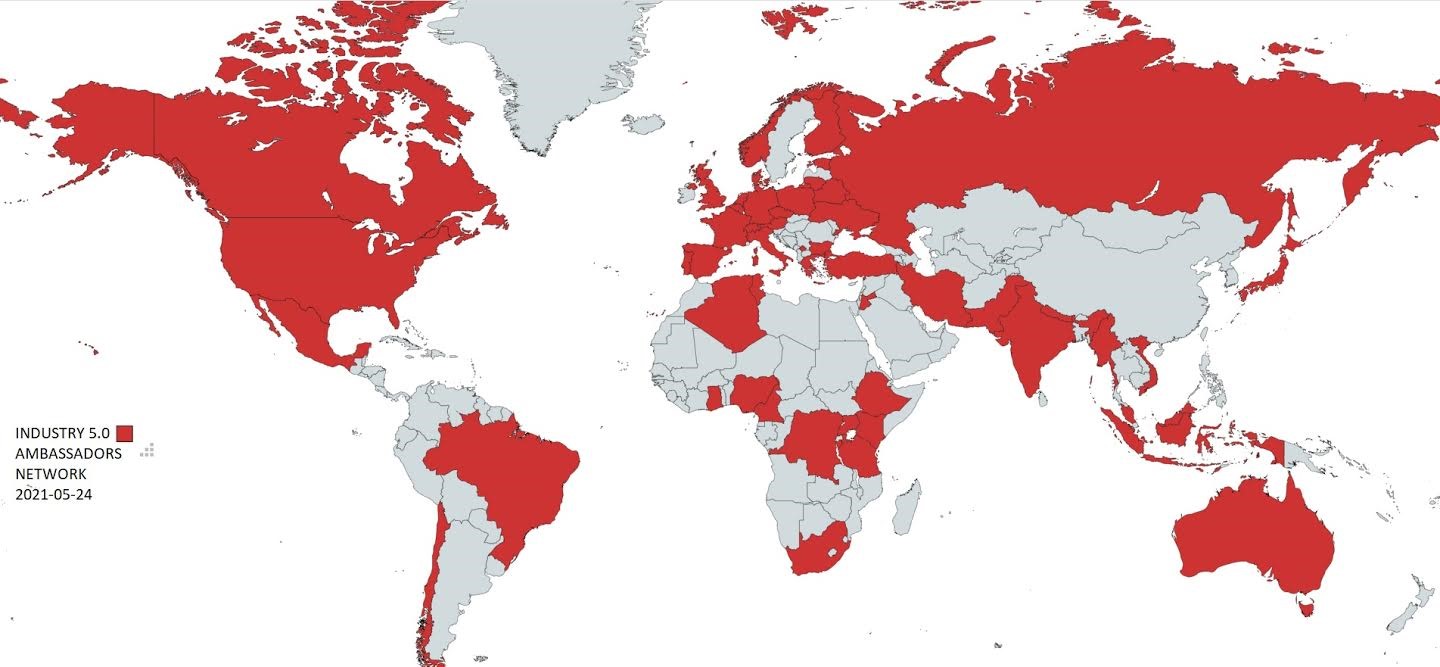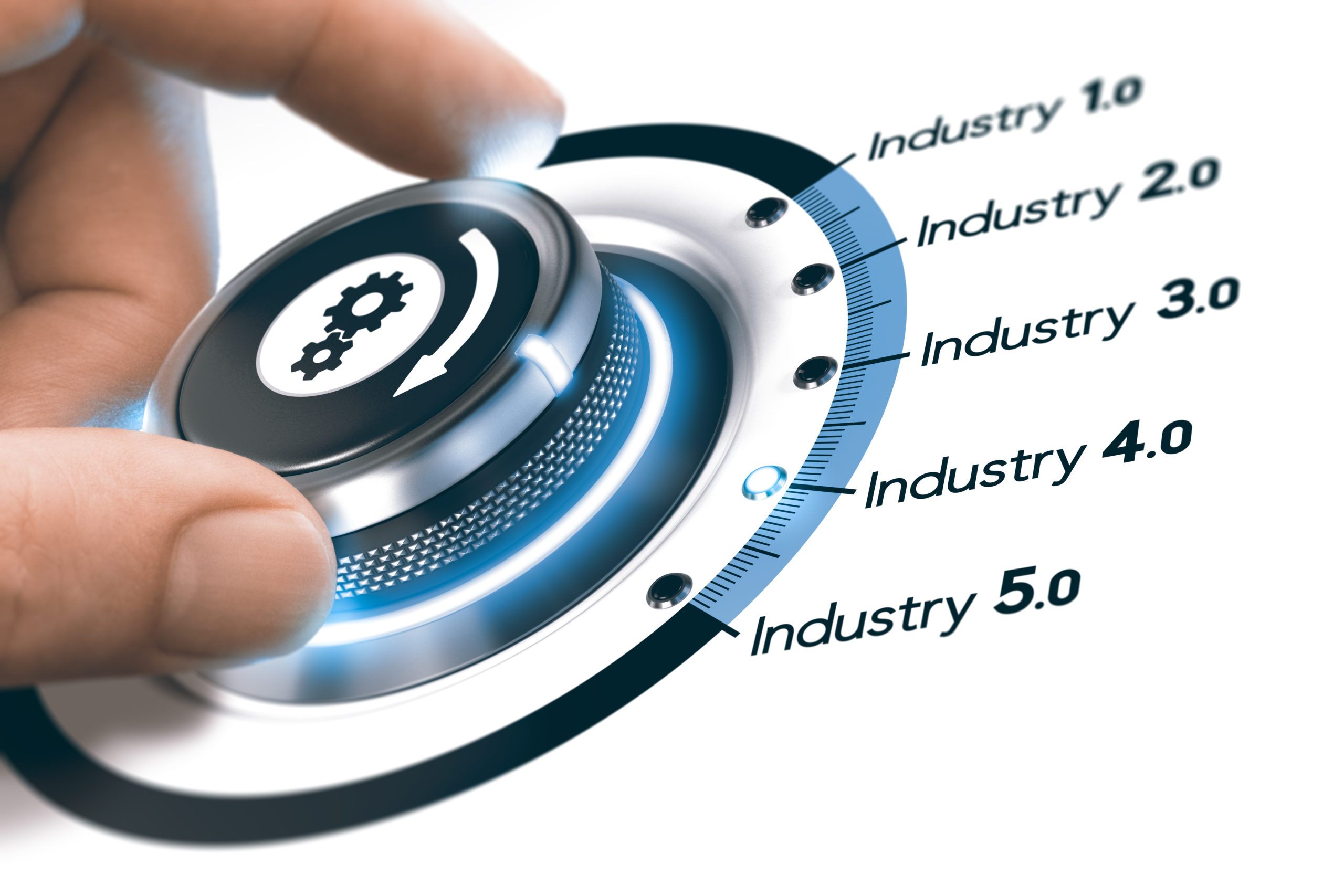The Fourth Industrial Revolution, or Industry 4.0, has arguably yet to take place. So one may understandably believe Industry 5.0 is far from relevant right now. Just the opposite is true according to Michael Rada, who positions his eco-friendly movement as more of an ongoing industrial evolution, with key environmental ramifications for the future well beyond the next revolution, whenever it occurs.
Industry 5.0 vs. the Fifth Industrial Revolution
To be clear, Industry 4.0 and the Fourth Industrial Revolution are often used interchangeably with one another. So, many have grasped onto that link to make the same connection between Industry 5.0 and the next revolution to come, including the European Commission in a research paper entitled “Industry 5.0: Towards more sustainable, resilient and human-centric industry” that was published early in 2021.
However, there’s a big difference according to Rada, whose Industry 5.0 definition was actually cited in the paper. The President of International Business Center of Sustainable Development (IBCSD) Lab, Rada started using the term Industry 5.0 in 2015, when he published a paper called “Industry 5.0 – from virtue to physical.” However, it all unofficially started a few years earlier in 2013, with the Czech Republic-based consultant’s industrial upcycling movement, which he has called a “ground stone” of what has since developed into Industry 5.0.
“I’m a logistician. I see the planet. I don’t see one segment or two segments…. Everywhere there is some way we are wasting and we can prevent it… [including] in an industrial environment, of course. It’s not so easy, because you need to really set up the logistics the right way and so on, but in fact the principle is easy. From one minute to another, you can change your behaviour.
“You can minimise waste when you have the waste, but if you [practice] waste prevention, waste does not occur. That’s the big difference,” he said, with Industry 5.0 recognising four waste types: physical, social, urban, and process. “Same as if you speak about recycling. You can only recycle waste, so you have to waste first and recycle after, but with upcycling you upcycle products and this is the big difference.”
Industry 5.0 Gaining Traction on a Global Scale
As an example, Rada called 3D printing or additive manufacturing a potential key Industry 5.0 component moving forward, as it radically limits waste, especially compared to subtractive manufacturing. While Industry 5.0 has a way to go, there is a growing number of people who subscribe to the notion that more can be done to both help save the planet and money for companies’ bottom lines simultaneously. In fact, “ambassadors” all over the world, maximum one per country, are joining the cause. There were 55 official Industry 5.0 ambassadors at the time Rada talked to 6GWorldTM.
“If you look at the group, you will never believe that these people are together, old, young, teachers, students, deans of universities, owners of companies, but every single one has something special, which, if you combine it together with the others, you get exactly the right picture of the world. That’s the point,” he said.

One such ambassador is Scott Krauger, President of Bequest Tech, an American firm that works with innovators to bring next-generation, green solutions to market. He called Industry 5.0 a call for a better of way of doing things, to help change the course of the planet.
“We’re losing the polar bears. The water’s rising. The ice is melting. We’ve got a problem here,” he said, likening Industry 5.0 to a specific moment he witnessed at a professional basketball game years ago.
“Hundreds of rows in front of me there were these two guys. I could see they were jumping up, waving their arms. It looked like they were yelling to the left and to the right. Pretty soon I figured out what those guys were doing. They were starting a wave… They got it a little further, a little further. It made it a quarter of the way around and eventually it popped.
“That wave went all around the arena about seven times and, as it was doing that, it hit me like a ton of bricks: All I’ve got to do is start a wave. If I tell you what I’m doing and it resonates with you and you tell somebody else and I’m still telling more people, just like Michael Rada’s doing […] you get enough people, you get enough of a wave going. Then something can really be done about it.”
All It Takes Is a Wave in the Ocean
Krauger said his responsibilities as an ambassador effectively come down to spreading the word and helping to bring people together to “start that wave.” For Krauger, support for Industry 5.0 comes down to two statistics he’s come across:
- An estimate that the amount of plastic will outweigh fish in our oceans by 2050 and
- How monetising all the world’s plastic waste would result in enough capital to purchase every National Football League, Major League Baseball, and Premier League Football teams, in addition to a slew of Fortune 500 companies, including the top three in Walmart, Amazon, and Apple.
While plastic waste is undeniably a huge problem, it’s the waste, not the material itself that is the primary issue based on Industry 5.0 principles. If the plastic is re-used accordingly, for example someone drinking out of a bottle multiple times instead of simply recycling it right away, it would go a long way to solving the bigger problem. Ultimately, it’s about striking the right balance. Rada used solar energy as another example.
“If there will be only solar as an energy source, it will be an issue, because you will be dependent only on one source and that’s the point businesses do not understand,” he said.
Similarly, Rada believes going completely digital is not the answer. Due to that dependence, problems arise if connections ever break. Rada concedes the line of thinking is not necessarily in line with the idea of Industry 5.0 many people might have already. So the need for education arises, Krauger noted, when asked what he sees as the main barrier to widespread adoption of Industry 5.0 principles.
Meanwhile Rada views resistance to change, especially at the top levels of government, as the biggest barrier. If enough people step up demanding that the problem gets addressed in a meaningful way, the comparison to a wave growing ever larger in the ocean makes a lot more sense in its similarity to evolution.
“In evolution, you evolve,” Rada said. “If evolution starts one day, you will never be able to stop it and this is why Industry 5.0 I take as an evolution.”







